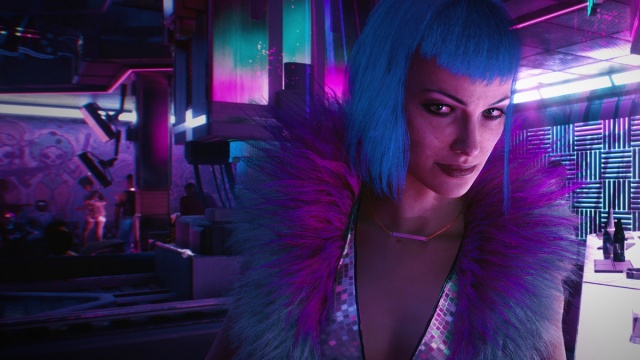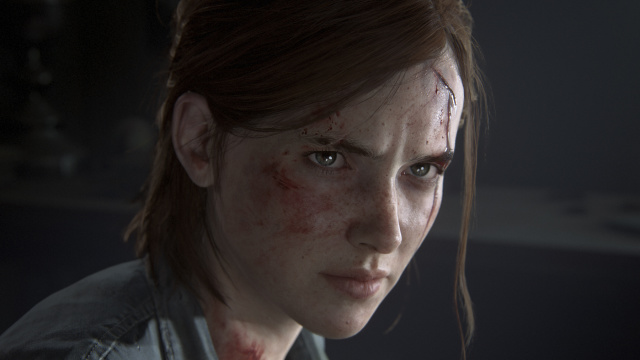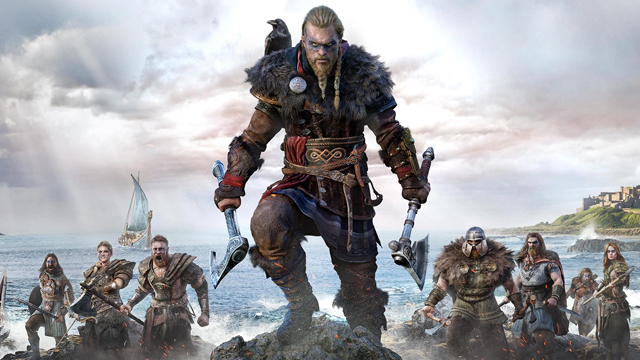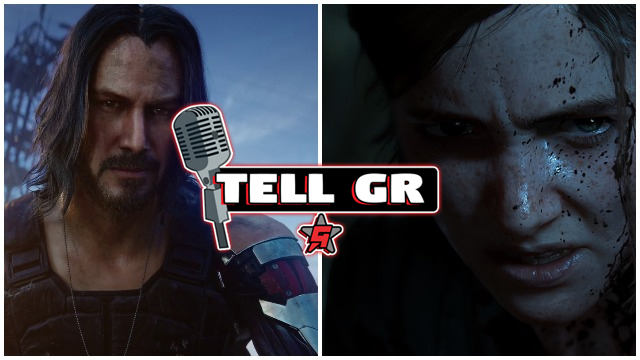Tell GR is a weekly Game Revolution community feature in which we ask you a question, and you answer it in the comments section below. Read the GR editorial team’s opinions before sharing your own responses!
Video games are too long, apparently. At least that’s what Troy Baker is annoyed about. This week, Twitter ate itself alive over whether or not modern games are too lengthy after The Last of Us 2 voice actor got into it with Bloomberg reporter Jason Schreier, over an innocuous tweet in which Schreier called video games too long.
But are they too long? The Game Revolution team shared our thoughts below, but now we want to see what you think. Leave your responses in the comments section!
“If we learned Cyberpunk 2077 was ‘only’ 15 hours long, we’d question it”

Paul Tamburro, executive editor: Yes. Obviously, you can’t apply a blanket statement to an entire medium, but many games — particularly “AAA” games — have their value equated to their length far too often, making many far longer than they need to be.
The whole idea that a game isn’t worth $60 because it doesn’t have 30+ hours of stuff shoved into it is damaging the industry. We regularly hear awful stories of crunch, and this crunch is undoubtedly exacerbated by the fact that developers are expected to create top-tier games that maintain their quality for an extraordinary length of time.
You only need to look at games like The Last of Us 2 and Red Dead Redemption 2 to imagine the blood, sweat, and tears poured into them. It’s clear that every detail of these games has been examined in excruciating detail by their creators, but we’ve also heard of the human cost of that level of detail.
The truth is, we all contribute to this. We expect the video games we buy to keep us occupied for a solid period of time. If we learned that Cyberpunk 2077 was “only” 15 hours long, we’d question it. But with big-budget single-player games trying to be the next big epic, and multiplayer games trying to be the next Fortnite, we’re stuck in this loop where developers are being stretched far too thin to meet the market’s demands. Unfortunately, these are the games that prove to be popular, so it’s difficult to see how this will change in the future.
“I’m cool with what most modern games ask”

Mack Ashworth, lead editor: I think most video games are fine in length. Provided they don’t pad out the main quest with mandatory grinding and allow me to just focus on the primary story, I’m cool with the usual 10-20 hours that most modern games ask.
I think the issue with games becoming too long is often down to how easily the player becomes distracted by side-mission content and collectibles. Some players will feel obligated to check off every new icon on the map before pushing on with the main quests, suffering through B- and C-tier side content before getting back to the S-tier main quests. See Final Fantasy 7 Remake, for example.
It’s The Last of Us 2 that has recently come under fire for being “too long.” I can see how a certain part of the game could be argued as detrimental to pacing, but that story element is also critical to what Naughty Dog is trying to accomplish with this game. In addition to that, the video game staple of developers stuffing every nook and cranny with resources and collectibles, forcing players to waste time between story beats, can also send the pacing out of whack.
“I loved The Last of Us 2, but I swear it ended three of four times before the credits rolled”

Jason Faulkner, senior editor: I think part of the problem with some games is that when you play a lot of them, you start to anticipate the ending. With a movie, you usually have one or two plot threads that get expanded upon and resolved by the end, so you don’t have to think about where things are going actively. You can just sit and enjoy a film and know inevitably that it’ll end in two and a half hours or less 95% of the time.
With games, playtime varies wildly, so you start to jump the gun mentally. I loved The Last of Us 2, but I swear that game ended three or four times before the credits actually rolled. The issue with narratively-driven games is that every time you brace yourself for the climax and the game continues, you lose a little steam and drive to see it through.
On the flip side, there’s a lot of games stuffed with filler content to extend the playtime. Filler content isn’t invariably bad, but it almost always breaks pacing. Nothing takes you out of the moment more than having a car chase or preparing for a massive battle, only to have the story pause so you can search for bits and bobbles on the way to your next mission marker. Of course, you could just go straight from quest to quest, but you always have to fear missing out on some cool item or bit of lore.
People expect full-priced games to pack as much content in as possible. Playtime is a massive indicator of value in today’s video game market. How long a game will take to beat is one of the biggest questions on consumers’ minds. This pressures many studios to maximize quantity over quality if they want to sell their games at a full $60.
The completionist mindset can also be detrimental to the modern gamer. I write a lot of guides, so I find myself close to 100% completion for many titles I work on. However, when I’m playing games for fun, I’m much more selective about which side quests I pick up, and collectibles I search out. Outside of the main narrative, I seek out the content that interests me most and leave the rest alone. Searching out every nook and cranny for NPCs and items is a hard habit to break. However, games are so much more immersive and enjoyable when you stop treating them like a scavenger hunt and play the way you want.
“You should want the audience wanting more and not less”

Michael Leri, lead writer: Video games are generally too long and for two reasons: vague demands of the people who overprioritize value at all costs and the uninspired desire for developers to go bigger with every sequel. Those two elements combine (and probably feed off each other) to make many, many games such overly long experiences.
It makes sense people want value for their games. If Assassin’s Creed Odyssey was only five hours and $60, then it would be a hard sell. Some don’t buy many games and want those games to last as long as they can.
But that often leads to developers overvaluing the dollars-to-hours ratio and making a game like Assassin’s Creed Odyssey the biggest entry in the series by a large margin. That sure makes for an easy marketing bullet point and that’s “what the fans want.”
But “value” often means repetitive quests, lots of meaningless Content™, and a bunch of empty space, all of which Assassin’s Creed Odyssey had an excess of. Many games have gotten more repetitive as they just try to be longer without justifying it. You should want the audience wanting more and not less, which is not something many games do well nowadays.











